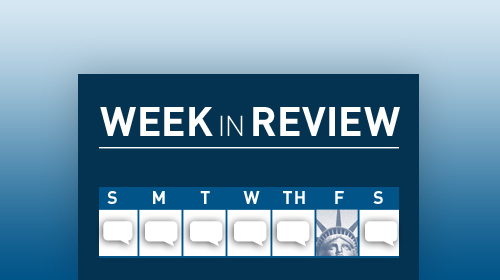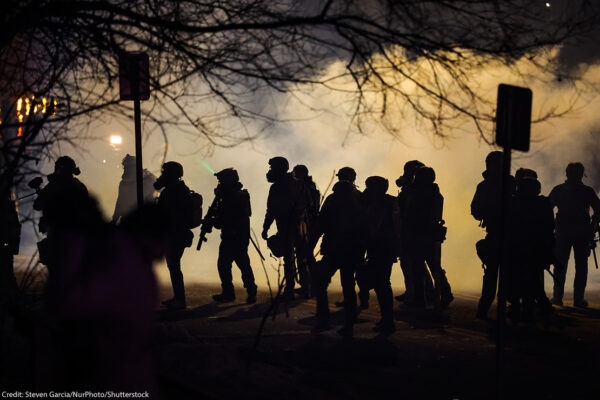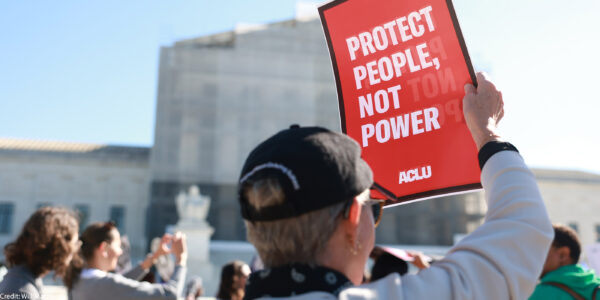
What smartphone manufacturer places persistent, unique identifiers in its smartphones that concern privacy experts?
The governor of which state could sign a bill this year to end the practice of shackling pregnant prisoners?
The Apple App Store’s “private censorship” of applications is criticized as infringing what First Amendment right?
Which Arizona law’s “show me your papers” provision will increase instances of racial profiling of Latinos?
In which state could a voter ID law disenfranchise over 200,000 citizens?
Apple's Persistent Device ID is a Threat to Privacy
A group known as Antisec released a collection of one million UDIDs—serial numbers associated with Apple mobile devices, such as iPhones and iPads—which they claim came from a trove of 12 million UDIDs pilfered from an FBI agent’s laptop.
The FBI has issued a statement denying that an agency device was compromised or that “the FBI either sought or obtained the information.” Clearly, there are a lot of open questions, and few solid facts relating to this alleged breach.
Regardless of the specifics of this incident, it is time to heed the concerns long voiced by privacy experts about the existence and use of persistent, unique device identifiers such as Apple UDIDs.
This is the Year California Will Stop Shackling Pregnant Women
This year marks the third attempt to get a signature on a bipartisan, unanimously supported bill in California (AB 2530) that would ban the practice of putting incarcerated pregnant women in dangerous shackles. Similar bills have passed two previous legislative sessions with overwhelming support from both political parties, only to be vetoed. Opposition from the powerful law enforcement lobby surely played a role in these vetoes. But we have persevered, and this year we’ve been successful in keeping law enforcement neutral. While we’re happy with this progress, we still need Gov. Jerry Brown to sign the bill.
Apple, Drone Strikes, and the Limits of Censorship
Wired reported last week that the Apple App Store has rejected an app that compiles news reports to help map overseas U.S. drone strikes, and provides users a pop-up notification whenever a drone strike has been reported. An app providing a stream of basic information about the conduct of a policy that is the subject of current public debate would seem as American as, um, apple pie.
Regardless of the legalities of Apple’s “private censorship,” we ultimately need information to flow freely through the major nodes of our information infrastructure. If major players decide to censor information because someone takes offense, free speech and democracy will be the worse for it.
SB 1070: The Fight Continues
Unfortunately, unlawful, prolonged detentions and racial profiling will become rampant in Arizona if Section 2(b) of SB1070 is allowed to go into effect, as local police officers across the state will be required to act as de facto immigration agents. We are one step closer to that reality after Wednesday’s ruling from a federal judge in Phoenix.
South Carolina Doesn't Need a Voter ID Law
Former South Carolina State Election Commissioner, Roger Leaks, Jr. blogs about his hope that a U.S. district court will see the new South Carolina voter ID law for what it is and block its implementation. The state’s new law is nothing but a devious and unnecessary obstruction that was crafted and designed to disenfranchise over 200,000 South Carolinians.
This is your week in civil liberties. Let us know if this is useful or if you'd like to see changes. Share your thoughts: ideas@aclu.org
Learn more about your rights: Sign up for breaking news alerts, follow us on Twitter, and like us on Facebook.



